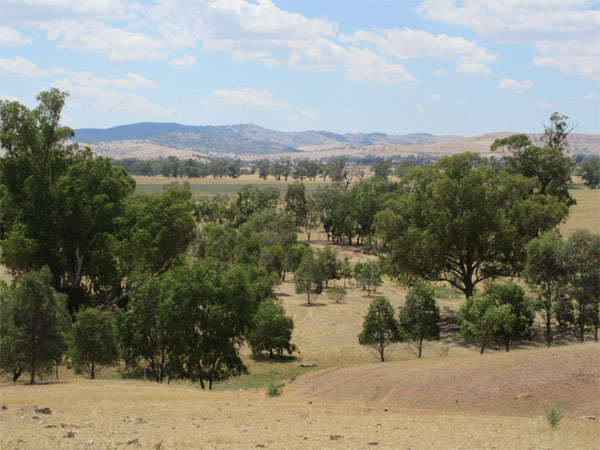Linking areas of native vegetation on farm lands
By Dr Ted Wolfe and Jacinta Christie, Murrumbidgee Landcare
Riverina farmers have progressively lifted the productivity and sustainability of their farmlands. Now, many landholders have taken the next step by conserving and rehabilitating the isolated patches of native vegetation on their farms to enhance biodiversity.
In three landscapes (Illabo, Bethungra and Junee; Kyeamba Valley; Tarcutta) over the last three years, 43 landholders have worked together to plan, link, plant, and protect patches of native vegetation. The project, coordinated by Murrumbidgee Landcare Inc. and funded by the Australian Government’s Biodiversity fund, fosters a community approach to planning and planting, encouraging landholders to develop their own plans within the project framework.
Peter and Sandra Heffernan have a farm near Junee and have taken a practical approach in their landscape, originally cleared to make way for cropping and improved pastures. On their hillslopes, they have carefully followed a design of establishing tree/shrub zones in belts and triangles alongside paddocks managed for pasture, grazing, and cropping activities. Supplementary plantings have occurred along natural watercourses.

Considerable progress has been made with native tree and shrub plantings.
John and Nicole Hopkins, whose property is at Illabo, have taken advantage of their landscape where tree regeneration is naturally more active. They fenced off potential revegetation areas, and now decide strategically how and when to graze shelterbelt areas. They acknowledge the importance of working with the landscape and point to the positive influences of NRM involvement on family life, and school-age children.
Murrumbidgee Landcare’s project has achieved impressive results. Taking place on properties with a total area of 37,221 hectares, nearly 700 ha of biodiverse plantings of trees and shrubs have been made and 400 ha have been protected and enhanced for natural regeneration.
Almost 24,000 ha have been treated to help protect native animals and vegetation from pests. Other benefits include shade and shelter for livestock, insect refugia, bird migration, and human satisfaction and capacity.
For further information about the project please contact Jacinta Christie [email protected] or Nicole Maher [email protected].



